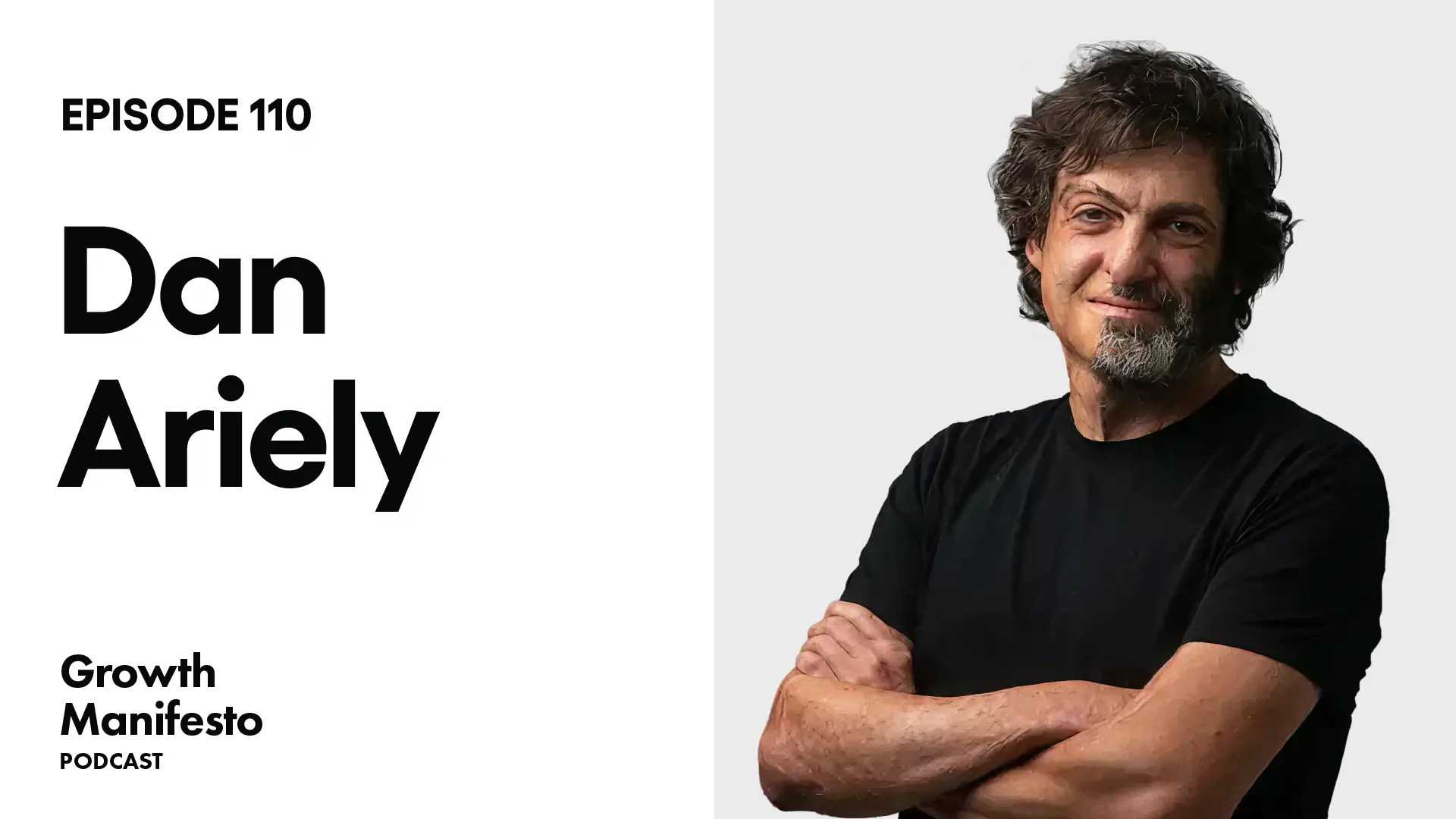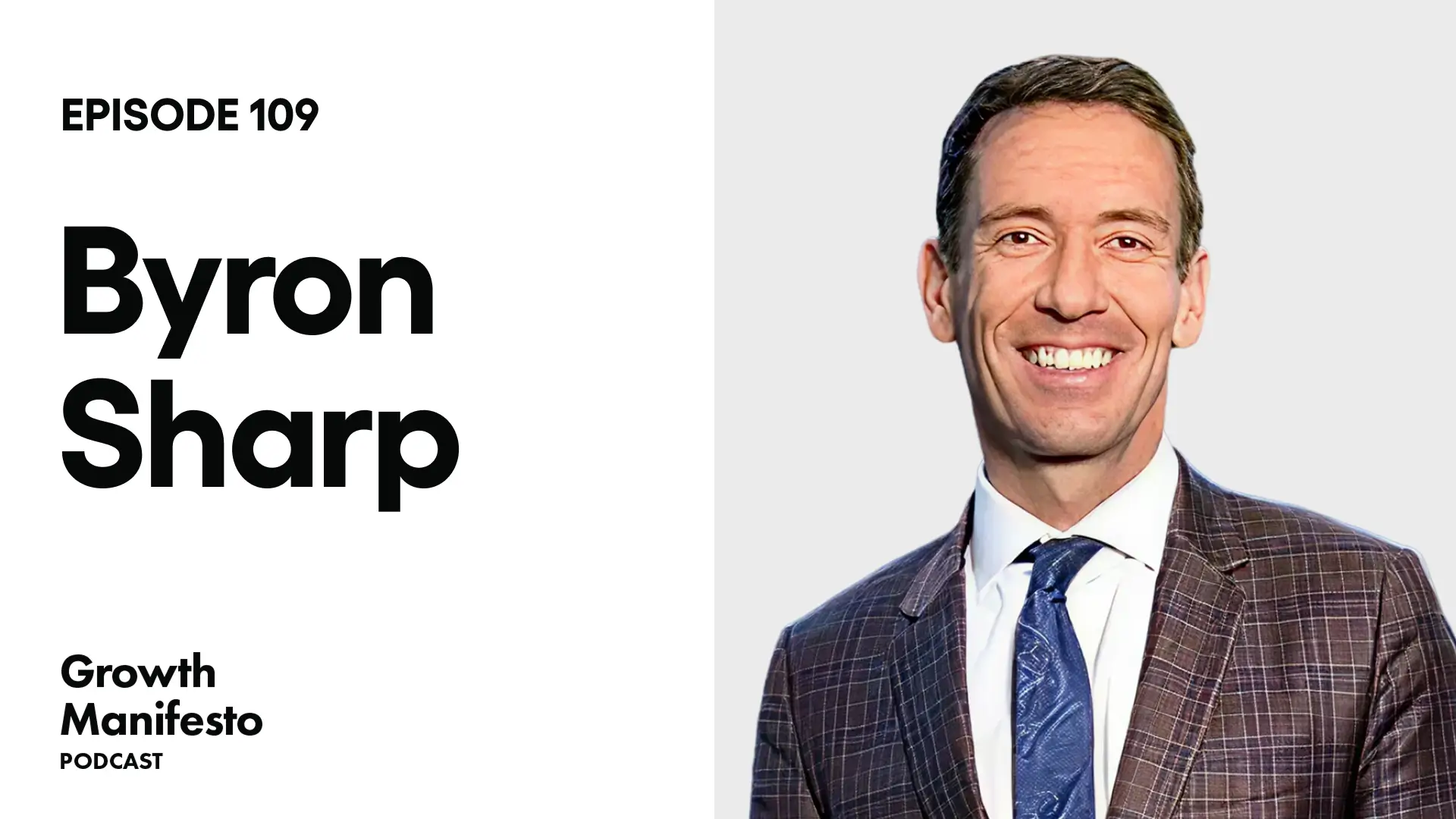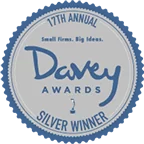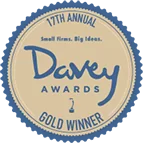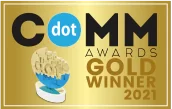Ja Rule’s journey from #1 selling recording artist to tech entrepreneur
This episode is with Ja Rule – recording artist, writer and entrepreneur. He’s the Head of Artists and Repertoire at Flipkick, and co-founder and investor at ICONN App. In this episode we talk about Ja Rule’s journey from #1 selling recording artist to tech entrepreneur, and how he’s helping to give control back to music artists.
LINKS
—
You’re listening to The Growth Manifesto Podcast, a Zoom video series brought to you by Webprofits – a digital growth consultancy that helps global and national businesses attract, acquire, and retain customers through digital marketing.
Hosted by Alex Cleanthous.
- YouTube: https://www.youtube.com/c/GrowthManifestoPodcast
- Instagram: https://www.instagram.com/webprofits/
- LinkedIn: https://www.linkedin.com/company/web-profits/
- Facebook: https://www.facebook.com/Webprofits/
- Twitter: https://twitter.com/webprofits
- Agency: https://www.webprofits.io
SHOW NOTES
- 00:00:48 Ja Rule’s introduction to the Growth Manifesto Podcast
- 00:01:19 How did the battle with Fat Joe go yesterday?
- 00:02:12 What are the biggest challenges that you had to overcome in your transition from music to business?
- 00:02:58 How long did it take you to learn about this industry?
- 00:05:45 Alex speaks on how you’re only limited in business by how creative you think.
- 00:07:12 What does your team look like? Or what kind of people help you to drive your success?
- 00:08:08 How would you describe an NFT?
- 00:09:53 Can you talk about the challenges in the last 10-20 years with limited use of the internet and how has the game changed for aspiring artists out there?
- 00:12:07 What are the ways an artist can make money?
- 00:13:18 What are the kinds of things you can put onto the blockchain as an NFT that can generate another revenue stream?
- 00:19:28 What advice would you give to music artists?
- 00:20:30 How do you get exposure these days?
- 00:25:20 What are some of the biggest lessons that you’ve learned through your journey?
- 00:28:38 How do you choose who you have around you? And what do you look for in them?
- 00:33:51 How important is it to you to never quit?
- 00:37:29 What’s next for you? What’s the vision for the future for you?
- 00:38:17 How can people be a part of this?
- 00:38:44 What’s the one thing that you want the listeners or the viewers of this podcast to do?
TRANSCRIPT
Ja Rule:
That’s what keeps me inspired to do this in this space. The fact that I can create something that’s never been done before, like my music. I can create something from here, and it becomes this and people are seeing the same vision that I saw when I created this. They understood it in the same way that I understood it when I created it. They knew that they needed this, the same way that I knew I needed this. And that to me, that’s innovation. That drives me, that inspires me whether it’s through making a new record that people fucking sing to the top of their lungs, or creating a new app that people want to use to help monetize their content.
Alex Cleanthous:
Today, we’re talking with Ja Rule, recording artist, entrepreneur and writer. He’s the Head of Artists and Repertoire at Flipkick and the Co-Founder and Investor at the ICONN app. Today, we’ll be talking about Ja Rule’s journey from number one selling recording artist to tech entrepreneur and how he’s helping to give back control to music artists. Just quickly before we get started, make sure to go ahead and hit that subscribe button to get the latest episodes as soon as they’re released. Now, let’s get into it. Welcome, Ja.
Ja Rule:
Sure. All right, thanks for having me, man. Sure.
Alex Cleanthous:
Pleasure, man. Now, before we get into it, I have to ask, how did the battle with Fat Joe go yesterday? Because from what I could see, it was a real success.
Ja Rule:
Yeah. I had a good time. It was a good battle. Verzuz is a very unique platform where artists get to showcase their passion for music in a different way, which was really cool. I got to do it with a friend and a good brother of mine, it was definitely a different experience, but I loved it.
Alex Cleanthous:
Yeah. I checked it out. It was just fantastic stuff, man. Fantastic content. I loved the production, got a lot of exposure across the socials, so it was cool.
Ja Rule:
Alex Cleanthous:
But let’s get straight into the podcast. You were the number one selling artist for years and years. And then, you transitioned into tech entrepreneurship and so on, right? What were the biggest challenges that you had to overcome in that transition?
Ja Rule:
I think everything comes with a learning curve, right? I think that was the hardest thing for me, was learning about tech and Bitcoin. Still learning about NFT, still learning about these decentralised markets. It’s the learning curve for me that I think is the most important thing and what takes the most time and what needs to be the thing you focus on the most. For me, it’s the learning curve.
Alex Cleanthous:
How long did it take you to learn these things? You come from one space, and you’ve got the fame and you’ve got the success and you’ve got all the learnings and you’ve done the grind. You’ve done the work, and now, it’s rewarding you. And now, you’re going into another space again, and you’re almost having to start again. How long did it take?
Ja Rule:
You never quite learn it all. There’s always something new to learn or something new to add to it. It’s every evolving thing, which I enjoy. I think that’s part of creativity. Creativity is an ongoing thing. I may start a record and create one verse and decide it needs two more verses or decide now it needs a female voice on it, on the hook, or I may decide to take this verse off and then need somebody else’s voice in there. It needs to be a feature. This is the same thing as how I see crypto and NFTs and all of these great new ways to invest. It’s the same way for me. I see it the same way. It’s ever-evolving. It’s ever-growing. And, I get to be very creative in this space where I get to add things. Take something like ICONN for example. ICONN started as one thing, as me wanting to be able to solve a problem to book talent in a very easy way and it branched out into a lot of different things. And now, we have live streaming and you can monetize your content and all kinds of great stuff like that.
So that’s what I love about this space, it’s ever-evolving. It doesn’t get stale. It keeps your mind in tune and fresh and you have got to keep your knife sharp. I enjoy that. I’m a guy that likes to keep moving. This is a perfect space for me because this is rapidly moving.
Alex Cleanthous:
Yeah. The one thing I found, because I’ve been in the business space for 20 years now. What I found, the one thing that’s so good about business is you’re only limited by how creative you think. There are no rules. There are laws, but there are no rules and that there’s no one way. And oftentimes, the way to succeed is a way that hasn’t been done before. I love your point around how the creative side of things connects with you because that’s the part which I love as well. It’s like, cool, so how well can you think about this problem? What are all the possible ways which you can approach the same thing? Who could you leverage or how could you leverage them? It sounds like that side of your music skills have now been transitioned into the business side of things.
Ja Rule:
Yeah. Like I said earlier, it goes hand in hand. I can relate a lot of things from my music, even going further back to my hustling days. But I can equate certain things to that and relate it to what’s going on in the business world and so forth and so on because everything just comes full circle. You take little bits and pieces here and put them here and make you a good little pie here, a good little picture puzzle… That’s what I do, I try to take my street knowledge and walk it and use it in my business world too and it creates a different type of savviness for me.
Alex Cleanthous:
Yeah. For sure. But oftentimes, I speak with people that are excellent at one thing and they talk about how they stay in their lane and they have a team around them that can support that. What does your team look like? What are the people or the kinds of roles around you that help you to drive that success?
Ja Rule:
One of my rules of thumb is to try to keep people that are way smarter than me around me, that way they make me look smart.
Alex Cleanthous:
That’s a good rule. Steve Jobs had that rule too.
Ja Rule:
Like my wife, she’s a brilliant, brilliant woman. She makes me look smart every day and she just brought me a glass of wine. I’m just really happy and interested and excited to be a part of everything that’s going on with this new NFT space and cryptocurrencies and blockchains. It’s all very exciting stuff.
Alex Cleanthous:
Okay. Let’s jump into that then. Let’s talk about NFTs. For the people who don’t fully understand NFTs, are you able to quickly explain how you would describe NFTs?
Ja Rule:
NFTs, stands for non-fungible token but for me, it’s a sense of ownership of something that is digital. And the way that they do that is by cryptographically authenticating these digital works of art through the blockchain. And I know that all sounds like a bunch of mumbo-jumbo, but the best way I can describe it is, to put it in layman’s terms, maybe simplify it a little bit is, think of it as… It’s hard because it’s its own thing, to explain, but there are things similar but not quite like. Maybe you could take trading cards, kind of, and put that into some type of understanding of what it could be. But not actually because the artist, or the owner doesn’t get paid in perpetuity for the resell. That to me is really what makes NFTs such a dominating force right now and so intriguing to everybody, and to so many artists because they can be paid in perpetuity for their art. I think that’s important.
Alex Cleanthous:
Okay. As one application of NFTs is the ability for artists to get paid the equivalent of a royalty.
Ja Rule:
Like a royalty, yes.
Alex Cleanthous:
And from some of the interviews I’ve seen you do, you talk about the challenge the music artist has trying to get paid these days. Especially with Spotify and Apple Music all on subscription, it’s so low. Could you talk about that challenge and how it’s changed in the last 10, 20 years? Because I remember 20 years ago, there was no social media, the internet was just starting. It was a completely different game. How has the game changed for your aspiring artists out there and the successful artists in the last 10, 20 years?
Ja Rule:
The one thing I wilL say is, it’s changing for the better. It’s the one thing I will say. I think 10 years ago, the music industry felt like it was a dying industry because of MP3s. Now, I think it’s come back around and now streaming is becoming a big part of how artists make their money. Not as big as touring, but it’s also created a new revenue stream which is amazing for the artists. And it’s also, with the new technology and just being able to go on a SoundCloud or Apple for instance on your own, it gives the artist their own freedom and their own power back. They can own their works and that’s important, the money’s in ownership and if you don’t own your art, if you don’t own your music, if you don’t own your films, if you don’t own, then you’re not making the money you should be making. It’s disappointing. Your family won’t be able to enjoy the fruits of these great works. Ownership is key and that’s why blockchain and NFTs are really cool.
Alex Cleanthous:
From the music point of view, let’s say I’m an artist. I’ve got the album, the songs, the singles. I’ve uploaded them or however it works to Spotify or to Apple Music or to SoundCloud, I’m getting some exposure for that, but that’s not really going to change the game for you, is it really?
Ja Rule:
No.
Alex Cleanthous:
Because it’s such a small percentage and the volume… What are the ways that artists can make money…? You talked about the touring side of things.
Ja Rule:
Touring is the biggest way for an artist to make money, that’s their biggest revenue stream. But if you’re a big artist, and you’re getting millions and millions of streams because they accumulate in that way for you to really make money. But if you’re a big artist and you’re doing that, you’re making good money over streams. You shouldn’t be making more money off of streams, but you’ll be making good money. That just wasn’t a revenue stream that was available 10 years ago. You still have your old ways of distributing your music, which can be through MP3 was. I wouldn’t say the old way because the only old way is vinyl these days. There’s no CDS. When you put your stuff on Apple Music and stuff, it has the feel of when you purchase it, you own it as an item. But that’s kind of what NFTs are. It’s owning something on a digital ledger that’s yours.
Alex Cleanthous:
Okay. Let’s say that I’m an artist. What kinds of things can I put onto the blockchain as an NFT, that I can start to make some money from or some royalties from?
Ja Rule:
It can be anything, music, it can be art. It can be film clips. People are really expanding what an NFT can be. Even at Flipkick, what we do, we do physical NFTs and that’s just an amazing process that we’re able to authenticate physical works for artists and now they can get paid a royalty forever and ever and their families can eat. It’s all new, we’re all wrapping our head around what the fuck is going on.
Alex Cleanthous:
Me too, by the way.
Ja Rule:
Yeah. All of us.
Alex Cleanthous:
Because I get blockchain, I get Bitcoin, I got some Bitcoin, some Ethereum and all that jazz. But NFTs is this new thing. It’s where you own the digital rights to something, and that actually means something in terms of ownership…
Ja Rule:
Well, when you go further NFT rabbit hole, you’ll find things like community and utility and a different sense of ownership. Almost like a country club membership type of thing.
Alex Cleanthous:
What do you mean by that? I’m interested because I haven’t heard that before.
Ja Rule:
If you’ve even been a part of any of these PFP projects like Board Ape Yacht Club or CryptoPunks, or Rumble Kongs, which I love very much. There are so many of them… But you become part of these clubs and it’s like a country club for investment. It’s like a really cool country club for a nice investment group of whoever owns this particular project. It’s almost like you become a part of these clubs and the object is for everyone inside the club to get rich and make each other be successful through being a part of this thing that we’re all part of. As I said, once you go down the rabbit hole, you’ll discover community, you’ll discover utility and it’s a really cool thing when you go down the rabbit hole.
Alex Cleanthous:
I’m really trying to unpack this also for all of the music artists out there, but also just for the audience. I’m just trying to understand, how do NFTs work and why they’re so popular right now? It’s such a trending topic right now, everyone’s talking about it. It’s like a gold rush right now, and I don’t think people actually fully understand it. I think there are a few who do, but I don’t think that the majority actually fully understand it. Everyone’s trying to find their way through. You talked about Flipkick that basically sells NFTs but for the physical side of things, right? How does that actually work? What should I do? I go to Flipkick, I purchase something, and what? It’s backed by something that is stored somewhere? How does it work?
Ja Rule:
Yeah. Absolutely. You can buy the NFT, which would be backed by the physical item. You can redeem the physical item at any time with your ownership of the digital. And then obviously, we burn the digital and now, your ownership is now the physical thing. It’s just a really dope way of letting artists have their physical works on the blockchain as well.
Alex Cleanthous:
Have you got stuff on the NFT space yourself? Have you sold stuff through NFTs?
Ja Rule:
Yeah, I’ve got a few projects that I’ve been working on like my club cards, it’s on OpenSea, you can check those out. One guy, Josh and me and my partner, we have a metaverse line called Stone&Robert. We even get metaverse werewolves, real cool hip-hop culture. The metaverse werewolves were the first of our kind, we make a lot of cool shit. We’re doing that. We’re doing a lot of stuff like that and just enjoying the space. I’ve actually had a chance to get some land in the sandbox, we’re building the Iconic Garden Arena in the sandbox with all my investment crew, my guys. It’s a lot of fun stuff going on, a lot of exciting stuff going on in the tech space, in the NFT world.
Alex Cleanthous:
Yeah. Just for the listeners, if you don’t know or if you haven’t heard about the metaverse, search it on Google. It’s a whole world that is in the virtual space and there are companies like Louis Vuitton, I think, that have got stuff going on in there. There’s so much stuff that’s going in the digital space right now, and I think the-
Ja Rule:
Absolutely.
Alex Cleanthous:
Blockchain is underpinning the currency, the way people can actually transact in this space. And most people haven’t heard of the metaverse, I mean I only heard about it six months ago and I was like, what’s this metaverse thing? I just started to get into it. I was like, damn, there’s a whole world out there in the computer.
Ja Rule:
A whole world in the computer.
Alex Cleanthous:
And there’s money in there too.
Ja Rule:
There’s a lot of money in there. We’ll be doing some concerts at the Iconic Garden Arena, maybe we’ll do a Verzuz there. The first Verzuz in that arena.
Alex Cleanthous:
Yeah. Because I heard, I forget who it was, but there was an artist that did a show in the metaverse and there was 15 to 20 million people that turned up. That stuff’s not going to happen in the real world.
Ja Rule:
No.
Alex Cleanthous:
Do you know what I mean? And that’s something interesting. I think between the blockchain and music, metaverse, NFTs, streaming, it’s can get complex these days for music artists who really know how to focus their efforts. What advice would you give them in terms of how should they be thinking about this? Because I’m sure they’re listening, they’re going, that all sounds cool. Should I just go into the metaverse? Is that the first thing or what should I do? Should I just get some NFTs?
Ja Rule:
I don’t have any good advice to tell anybody. Like I said, I’m still poking holes around, trying to figure things out myself. My advice that I would give is to take a look at it, get involved. Start learning what’s learning, don’t be left out, don’t be late to the party, is the advice I would give.
Alex Cleanthous:
Yeah. Because I mean, to be first, it’s like… I mean, everyone can probably relate to the people that were there first with Instagram, they’ve got all the followers, because of all the algorithms and the all the hacks in the beginning. And they got an unfair advantage. Same with TikTok, that’s the same thing. Everyone that was there first, they got the exposure. And now, everyone’s trying to get onto the bandwagon but that bandwagon’s full and it’s just way harder to breakthrough right now. I think that’s a really good piece of advice.
What about the distribution these days? How do you get exposure? I spoke about it before, about the Fat Joe thing that you did yesterday, that’s obviously fantastic for exposure. Is it those kinds of things that artists should be doing these days to really push exposure just for their music?
Ja Rule:
Yeah. All of those things are great exposure. Verzuz has become this huge, humongous platform for artists where you can go and do these shows and it has a real effect on how people see you and your artistry because you have a chance to showcase it in such a big fashion. I’m really impressed by what they’ve been able to do with such a short period of time with Verzuz and reach that they get and the impact that it makes. I’m also looking to do something not the same, but similar, on my ICONN platform. It’s called Vibes and it’s a concert series where big artists, iconic artists, do their classic albums from front to back and tell the stories behind the music with a live band and then release it as a live album.
These things are just new ways, I think, of experiencing music and art. I think these will be the new ways. These will be the main ways of experiencing music and art in the future.
Alex Cleanthous:
Yeah. That’s a fantastic point. You’re really talking about platforms for artists to leverage existing platforms that already have audiences and try to maximise their audiences essentially. Because it’s hard to create the audience from scratch, that stuff’s expensive, that stuff can be challenging, that stuff’s complex. There’s all those types of things. You talk about the ICONN app, that sounds like that’s a platform as well. Could you just quickly talk about the ICONN app and what’s the problem it’s trying to solve and how does it work?
Ja Rule:
ICONN app is amazing, man. We’re trying to allow content creators be free and create whatever content they like to create, but also be able to monetize it. Charge for their live streams, or pay per view events or DJs can get tips while they’re DJ’ing on the platform in real time. A lot of different things like that. Meet and greets. If I do a concert and I virtually have it as a pay per view concert, you can also buy the meet and greet package and get a few minutes with me backstage virtually as well. All of those types of things are really cool things that are already built into the platform. But of course, it’s expanding. We have the book nav button where you can book me for my tine, so to speak, time is money. Each artist can offer their packages of what they offer their time for. Just really cool stuff like that.
Alex Cleanthous:
You’re creating the platform and so on one side of it-
Ja Rule:
It’s already created. It’s in the App Store right now. Go get it. ICONN, two Ns, .live.
Alex Cleanthous:
Of course, that’s available on both iPhone and Android?
Ja Rule:
Not on Android yet, we’re working with Android now.
Alex Cleanthous:
Just iPhone for now.
Ja Rule:
But yeah, iPhone, iOS.
Alex Cleanthous:
Yeah. Look, I’m a bit more bias because I love Apple and I’ve got all the Apple stuff, so I’ve got it already. I highly recommend that people check it out. But you seem to really be doing a lot for the music industry. You’re trying to create places for artists to just take control of their art…
Ja Rule:
Everything I create is for us by us. It’s things that I felt I wish I would have had when I was a young artist to help me in my career. ICONN is going to expand in a lot of different ways, from music, to original content, all of those great things, so stay tuned. Even an NFT marketplace, I’ve been working on for ICONN to display NFTs, what I call motion pictures. You’ll see it soon, you’ll get to check it all out. We’re working.
Alex Cleanthous:
You’ve done a lot over the last 20, 30 years. I’m sure-
Ja Rule:
But not enough.
Alex Cleanthous:
Who’s ever done enough?
Ja Rule:
I know right.
Alex Cleanthous:
Maybe Elon Musk going to Mars, maybe he thinks it’s enough.
Ja Rule:
I still don’t think he’s done enough either, right?
Alex Cleanthous:
Same, right? What are some of the biggest lessons that you’ve learnt through that journey? Because that’s a journey and a half, right? What are some of the biggest lessons?
Ja Rule:
One of the biggest things, lessons, I would say I learned along the way, be yourself. Always present yourself and be who you are. That way, you sleep well at night.
Alex Cleanthous:
It’s hard sometimes though, right? Because everyone thinks that they should be something else oftentimes in the beginning.
Ja Rule:
Actually, it isn’t. It’s really simple. Be who you are and be accepting of others but also, be thoughtful of the fact that people don’t always have to accept you. And that’s very key, because it’s hard for people to accept or let somebody into their world and open up to them in the same way. It’s a relationship that has to grow. These are the things that I try to work on as I become a better businessman or a better entrepreneur. Like I said, the learning curve on all of this shit is the biggest thing, it’s the elephant in the room. How much do you know about what you do?
Alex Cleanthous:
How do you approach that? Because obviously, that’s huge, right? It’s like, hey look, I’m going to go make an app. I’ve never done an app before. How do you approach that? All right, cool. I’m going to have to go into this now. But what’s your process? How do you go about it?
Ja Rule:
I have a real loose approach on this. I have a vision of what I see and what I want and sometimes they’re very big and vast. A lot of times my team has to say, Ja, we don’t either have the money to do that or that’s probably literally fucking impossible to do. But I like those answers, because it lets me know that I’m thinking of things that people haven’t thought of. In my eyes, everything can be done. It just takes time, effort, and some money of course. But that’s what keeps me inspired to do this in this space. The fact that I can create something that’s never been done before, like my music. I can create something from here and it becomes this and people see the same vision that I see when I created this. They understood it in the same way that I understood it when I created it. They knew that they needed this the same way that I knew I needed this. And that to me, that’s innovation, that drives me, that inspires me. Whether it’s through making a new record that people fucking sing to the top of their lungs or creating a new app that people want to use to help monetize their content.
Alex Cleanthous:
You’re a visionary leader, right? You’ve got the vision, the direction and then you leverage your team of people who can-
Ja Rule:
Absolutely. Bring my vision to life.
Alex Cleanthous:
Execute, follow through and that’s the path that you go. Because this is the hard one, and this takes years, this took me years anyway, but how do you choose who you have around you? Because obviously, there has to be a good trust there now for you to be able to say, cool, here’s my vision. If you tell me no, I need to listen to you because I trust you. What do you look for in people that you have around you?
Ja Rule:
You read all these fucking sayings, trust no one. Be careful who you trust and all these type of sayings. But I happen to think differently, I happen to believe that you allow people to be who they are and they will appear. I don’t think you can look at everybody with the lens of non-trust and think that you’re going to get trust from that. I think you have to go into a situation with trust and if a person is distrustful, they’ll show up eventually. I allow people to be who they are, because like I said, they will arrive eventually. Who they really are will arrive.
Alex Cleanthous:
Yeah. I found something similar, but I’ve been burnt so many times. But I still have a heart that trusts and I still think the bet of people and I give them a chance. But I’ve gotten better at seeing the little things, the little alarms.
Ja Rule:
Yeah. You got to have a spidey sense with it and try to sort through the bad apples, but it’s tough. It’s tough living like that. It’s tough living with the thought of everybody’s trying to fucking do me wrong. I’ve lived both sides of that. I’ve lived with that mentality that everyone is after me, you got to be careful, you got to be guarded because everyone wants something from you. I’ve lived with that, and it’s not fun. It’s draining to me, mentally because I’m always thinking this person… I don’t want to do that. And so, I had to start looking at it on the other side of it and say, listen, allow these people to become who they are. If they’re not trustworthy people, it will come to light, it will come… I think I have a good enough, now at my 45 years of age, I think I have a better gauge of people and from the beginning, I can gauge people a little bit better I believe. I believe that the people that I bring around me are trustworthy people, are good people, because I’ve made this assumption, this analysis by dealing with them or whatever.
I feel like a little bit of a good sixth sense and a little bit of a feel of who are good people and who are bad people. I try to stay away from the bad people and keep good people around me. When I say good people and bad people, obviously I don’t know what the fuck you do in your spare time. I’m talking about energy, people that have half glass full energy verse half glass empty energy. Because those are the things you look for, just people with that type of upbeat spirit because you know they’re always going to, no matter the situation, no matter what’s going on, they’re going to find a solution. They’re not going to dangle on the problem, but they’re going to find a solution or help find a solution. That’s what you want, you want positive people, positive minds, positive thinking.
Alex Cleanthous:
Yeah. That’s a fantastic point and I love that thinking.
Ja Rule:
But you got to keep a couple of negatives around too. You know what I’m saying?
Alex Cleanthous:
What do you mean by that?
Ja Rule:
You got to keep a bunch of people that see the glass half empty, because-
Alex Cleanthous:
Yeah, just to balance it.
Ja Rule:
Because they help make sure that the glass is always full.
Alex Cleanthous:
Because they help to make… how do they help to make sure?
Ja Rule:
That the glass is always full.
Alex Cleanthous:
Ah, because they’re always thinking of the downsides and-
Ja Rule:
Because they’re always thinking of the downside. So if I’m thinking of the upside, and I have a few people thinking on the downside, we can’t fail, or we shouldn’t fail. The glass should, it should run over, runneth over.
Alex Cleanthous:
Yeah, exactly.
Ja Rule:
The glass should runneth over if we come together the correct way. You got to keep a couple of those thinkers around too.
Alex Cleanthous:
Yeah. I’ve been in environments where everyone’s just optimistic and now one’s thought of the possible risks or the downsides.
Ja Rule:
Right.
Alex Cleanthous:
It’s like, ah damn, wish we had someone there at some point to go, hey, did you think about that? Someone didn’t think about that.
Ja Rule:
What you got to understand and appreciate about those type of thinkers is, it’s not that they’re thinking negative about the problem. But they’re thinking through the whole problem. While you’re thinking of how great it could be, they’re thinking of what happens if? And then now, we now how to pivot. And that’s important. You know what I mean? That’s very important.
Alex Cleanthous:
But you’ve been at this now for a while. I talk to lots of people that are starting out, all stages of their business and even just for myself, I found that the one thing that… I wouldn’t say I’m the smartest, I wouldn’t say I’m the most intelligent, I wouldn’t say I’m the quickest but I’m relentless, I’m persistent and I will never quit. How important has that been for you?
Ja Rule:
It’s very important. I’ll put my whole life on that. There’s no Ja Rule if I’m not persistent, if I’m not overly confident in who I am. You get a million doors slammed in your face.
Alex Cleanthous:
Still, right?
Ja Rule:
It’s that million and one door, that’s the door.
Alex Cleanthous:
Million and one.
Ja Rule:
And so, you got to push through, you got to be persistent. You got to keep moving, keep your legs running like a running back. Keep your legs moving like a running back. You got to do those things and you have to think that way and it comes with a real confidence that you have to have in your abilities to overcome. Everybody doesn’t have that. Everybody thinks they’re ready for the fight until they get in the fight.
Alex Cleanthous:
Is that Mike Tyson’s statement, right?
Ja Rule:
Everybody has a plan until they get punched in the mouth. That’s absolutely correct.
Alex Cleanthous:
Yeah. And so, when things are hard, how do you get through that? Because that’s when most people quit. It’s like, yeah, I’m persistent, when things are good. And then, it gets hard and it gets hard for long and then they quit. How do you stay with it?
Ja Rule:
It’s a little mechanism that I have and everybody needs this mechanism but it’s not easy to have. It’s called, I don’t give a fuck. Everybody needs a, I don’t give a fuck switch that they can turn on and say, I don’t care what this person thinks. I don’t care what that person thinks. I don’t care what anybody thinks about me. I know what I’m capable of and I’m going to fucking do it, prove it, show it, whatever the case may be. This is my fucking super power. My super power is that I believe in me more than anything in the fucking world. I have supreme confidence. That is my superpower. For me, it’s very important. I try to instil that in my kids, believe in yourself. You can do it, put your mind to it. I don’t like the word I can’t. From the time they were little kids I told them, don’t say that word in this house. It doesn’t exist here, I can’t, doesn’t exist here. You either do or you don’t.
Alex Cleanthous:
That’s it, right? I love how you said that. I love the, I don’t give a fuck switch because I think I’ve got that switch.
Ja Rule:
You have to have it.
Alex Cleanthous:
To create something that is above and beyond the norm, that is extraordinary, you cannot listen to what people tell you is possible unless those people are people that have achieved something extraordinary. But those people won’t tell you, you can’t do something. That’s a whole other conversation.
Ja Rule:
They’ll never tell you that. Listen, I love this Jay-Z line. He says on his records, “Everybody want to tell you how to do it, but they never did it.” It’s the most craziest shit. Everybody has advice on how you should live your life, how you should do this, or how you should do that. But why is it not working for you if it’s so simple? Don’t tell me things that you have not experienced or that you haven’t lived through to tell me that I should live that way or go through.
Alex Cleanthous:
That’s huge.
Ja Rule:
It’s just not believable. It’s just not something I would do.
Alex Cleanthous:
That’s an awesome point. One more question. What’s next for you? I can see the music’s happening, you’ve got the NFTs, you’ve got the app. I can see it’s all connected in some way. What’s the vision for the future for you?
Ja Rule:
Man, I’m about to get into a couple little projects especially in my music stuff and I’m going to do something really with music Monday’s. I feel as though my music is art and it should be released as such. I’m going to release these art projects as NFTs and own my music and give people a chance to have a piece of my legacy and ownership as well, which is cool. We’re going to do this a little bit differently than the regular distribution process, we’re going to release my music as NFTs from here on out and see how that goes.
Alex Cleanthous:
Where can people be part of this? I quite like the music Monday, I will support it just to support it…
Ja Rule:
Yeah. I want to start it on OpenSea. But then eventually, it will move to ICONN, once the platform is built out to hold that type of a situation.
Alex Cleanthous:
Yeah. Perfect. And this is something I ask every person on the podcast, but if there was one thing that you want the listeners or the viewers of this podcast to do, a site to visit, a place to go, something to do, what would you like them to do?
Ja Rule:
Go to iconn.live baby. Two Ns, ICONN, two Ns, .live. Create you a page, follow me Ja Rule on ICONN and it’s a magnificent platform. We just started, we are growing right now. We got about 5000 users, early adoption is key. Get in there now and like you said, get them early algorithms and get your followers up early quick. And then, we’re going to blast off really… It’s about to blast off heavy. We got some really cool shit coming down the pipe. So get in now before it’s too late.
Alex Cleanthous:
And for the listeners and the viewers out there, you can see that Ja is taking some big steps right now from music to NFTs to the app. So start now. You heard the thing before, if you start early on, you get an unfair advantage, so start now.
Ja Rule:
Yeah. And check out Flipkick, man and get some of those original live, physical NFTs.
Alex Cleanthous:
Yeah, for sure. Ja, thank you so much for coming on the podcast. It’s so good to speak about your journey, your thinking.
Ja Rule:
Thanks for having me, man. For sure.
Alex Cleanthous:
The mindset and all the things that you’re doing to help the music industry, because it’s a complex space these days, right? It’s not just creating music and letting it go. Thank you so much for coming on the podcast and sharing your journey today.
Ja Rule:
No doubt, man.
Alex Cleanthous:
Awesome.
Ja Rule:
Talk soon, baby.
Alex Cleanthous:
Thanks, man.
Ja Rule:
Much love.
Alex Cleanthous:
Yeah. Peace. Thanks for listening to the growth manifesto podcast. If you enjoyed the episode, please give us a five star rating on iTunes. For more episodes, please visit growthmanifesto.com/podcast. And if you need help driving growth for your company, please get in touch with us at webprofits.io.
Now that you’re here…
Why not take a few minutes to see how Webprofits can help you achieve your growth aspirations?
We helped one company grow from $25M to $190M revenue in 4 years, and we work with challenger brands that want to make a serious impact in their industry and have the resources (and the will) to make it happen.
If you want a growth strategy that leads the way in your industry, find out how Webprofits can help you transform your digital marketing.
See what we can do


